Press Releases
G7 Trade Ministers’ Meeting in Osaka-Sakai
“Opening Session” and “Outreach Session for Enhancing Supply Chain Resiliency”
October 28, 2023
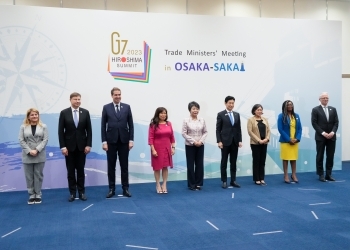
On October 28, commencing at around 1:45pm, for approximately 25 minutes, and commencing at around 2:20pm, for approximately 100 minutes, in Osaka, Ms. KAMIKAWA Yoko, Minister for Foreign Affairs of Japan, participated in the "Opening Session" and the "Outreach Session for Enhancing Supply Chain Resiliency", respectively. The overview of the meetings is as follows.
The Outreach Session was attended by five invited countries (Australia, India, Indonesia, Chile, and Kenya), three international organizations (World Trade Organization (WTO), Organization for Economic Cooperation and Development (OECD), and Economic Research Institute for ASEAN and East Asia (ERIA)), as well as representatives from industries of the G7.
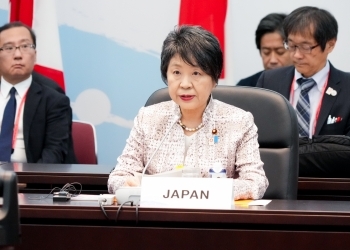
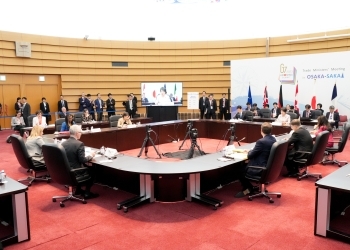
1. “Opening Session”
- (a) At the outset, Minister Kamikawa stated that as the international community is facing a turning point in history, G7 members, which share values and principles such as freedom, democracy, respect for fundamental human rights and the rule of law, have a responsible role to play in guiding a world of cooperation rather than divide and confrontation and in realizing sustainable growth of the global economy.
- (b) Minister Kamikawa emphasized that G7 members should take leading role in advancing WTO reform in order to maintain and strengthen multilateral trading system with the WTO at its core as the foundation of global growth and stability. In addition, G7 members confirmed that it is essential for G7 members to harmonize policies in order to counter strategic challenges such as economic coercion, and collaborate with international partners beyond G7 for sustainable development of the global economy.
- (c) In response, participating Ministers from the G7 expressed their gratitude to the role of Japan as the G7 Presidency.They also expressed their expectation and willingness to use this occasion to hold candid discussion in the Meeting while global issues pile up, such as building supply chain for energy and food, and climate change.
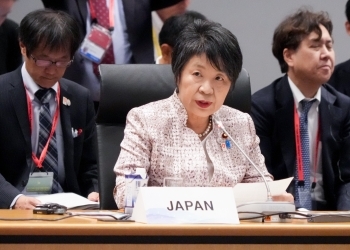
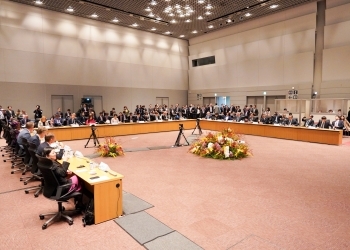
2. Outreach Session on Supply Chain Resilience
- (a) At the outset, Minister KAMIKAWA welcomed the representatives of five invited countries, three international organizations, and industries. Then she pointed out (i) that collaboration with international partners beyond the G7 as well as engagement with the private sectors are essential for supply chain resilience, (ii) the importance of collaboration with trusted partners who share the principle of "trustworthiness and reliability" confirmed by the Leaders, and (iii) the need for promoting a wide range of investment in resource-rich countries with our support for ensuring compliance with environmental, social, and governance (ESG) standards by those countries. Minister KAMIKAWA also mentioned (iv) that Japan will contribute to strengthening the autonomy of developing countries by actively promoting cooperation to enhance resilience and diversificaion of supply chains through the use of Official Development Assistance (ODA) and other means.
- (b) Representatives from industries from the G7 shared their insights and best practices based on their efforts and challenges to build resilient supply chains in the field of food security and agriculture, the need for diversification of the supply of raw materials including critical minerals for energy transition, the importance of colaboration with the Global South as raw materials suppliers, and industries’ contribution to the inclusive growth of the Global South through upstream development and building value chains.
The representatives of international organizations, based on their respective expertise, emphasized the importance of enhancing supply chain resilience for maintaining and improving the multilateral trading system and building an inclusive society. They also discussed the need to strengthen efforts at the regional level. - (c) The participants including representatives from invited counties engaged in candid discussion and agreed on the importance of the following: (i) achieving inclusive and sustainable growth through efforts to build resilient supply chains; (ii) putting into practice the elements of principles on resilient and reliable supply chains confirmed at the G7 Hiroshima Summit; and (iii) promoting further collaboration and cooperation with trusted public and private sector partners.

